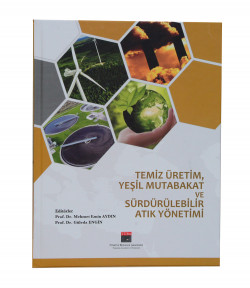Cleaner Production Studies In Turkish Manufacturing Industry

Cleaner Production Studies In Turkish Manufacturing Industry
The increasing concern regarding the rapid depletion of global resources, particularly water scarcity, necessitates the adoption of a resource-efficient and cleaner production approach to ensure the sustainability of industries. The rapid industrial and technological advancements during the industrial revolution have contributed to environmental issues. Consequently, this has accelerated the depletion of natural resources, leading to global problems such as acid rain, drought, global warming, and ozone layer depletion. The lack of environmental investments by producers has worsened these environmental issues on a global scale. However, the rise in industrialization and the implementation of regulations by the European Union (EU) have highlighted the importance of effectively and efficiently utilizing resources. Embracing the circular economy approach for sustainable development involves minimizing waste generated throughout the entire life cycle of a product and promoting waste reuse and recycling.This study provides examples of general improvement practices in energy, water, and raw material resources within various manufacturing industry sectors. To enhance energy efficiency, it is crucial to focus on measures like improving combustion processes and recovering waste heat. This can be achieved by utilizing waste heat sources such as flue gas, flash steam, blowdown energy, and wastewater heat, thereby ensuring more efficient utilization of energy resources. Regarding water efficiency, monitoring water consumption on a process level and examining wastewater quality play significant roles. By doing so, water can be recovered and reused in production processes, contributing to the overall reduction in water consumption and preservation of water resources. These measures, along with conserving raw materials and chemicals, aim to promote sustainable resource usage and mitigate environmental impacts.
